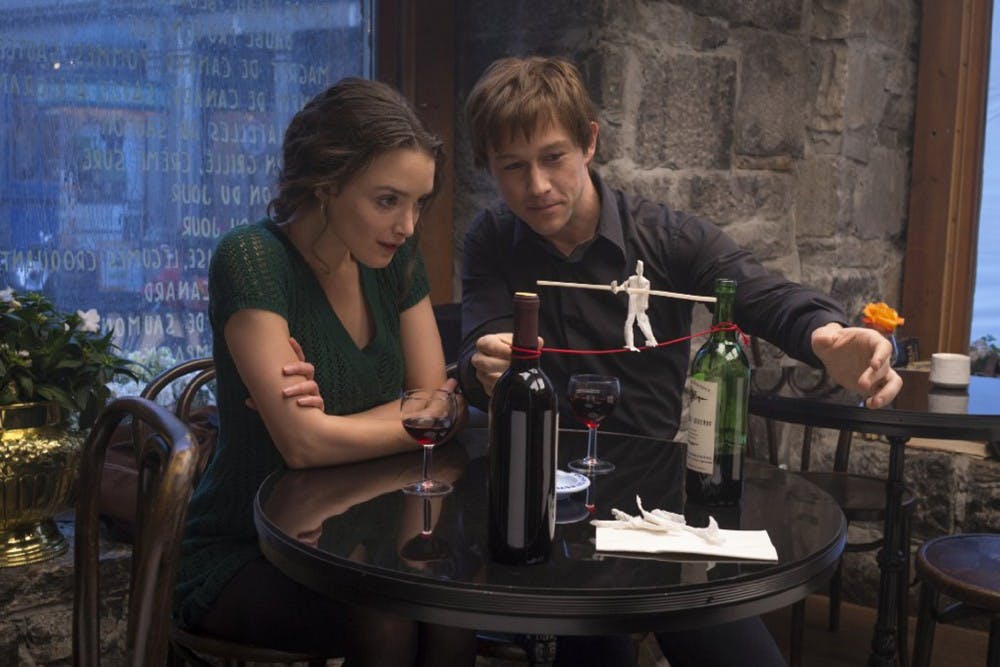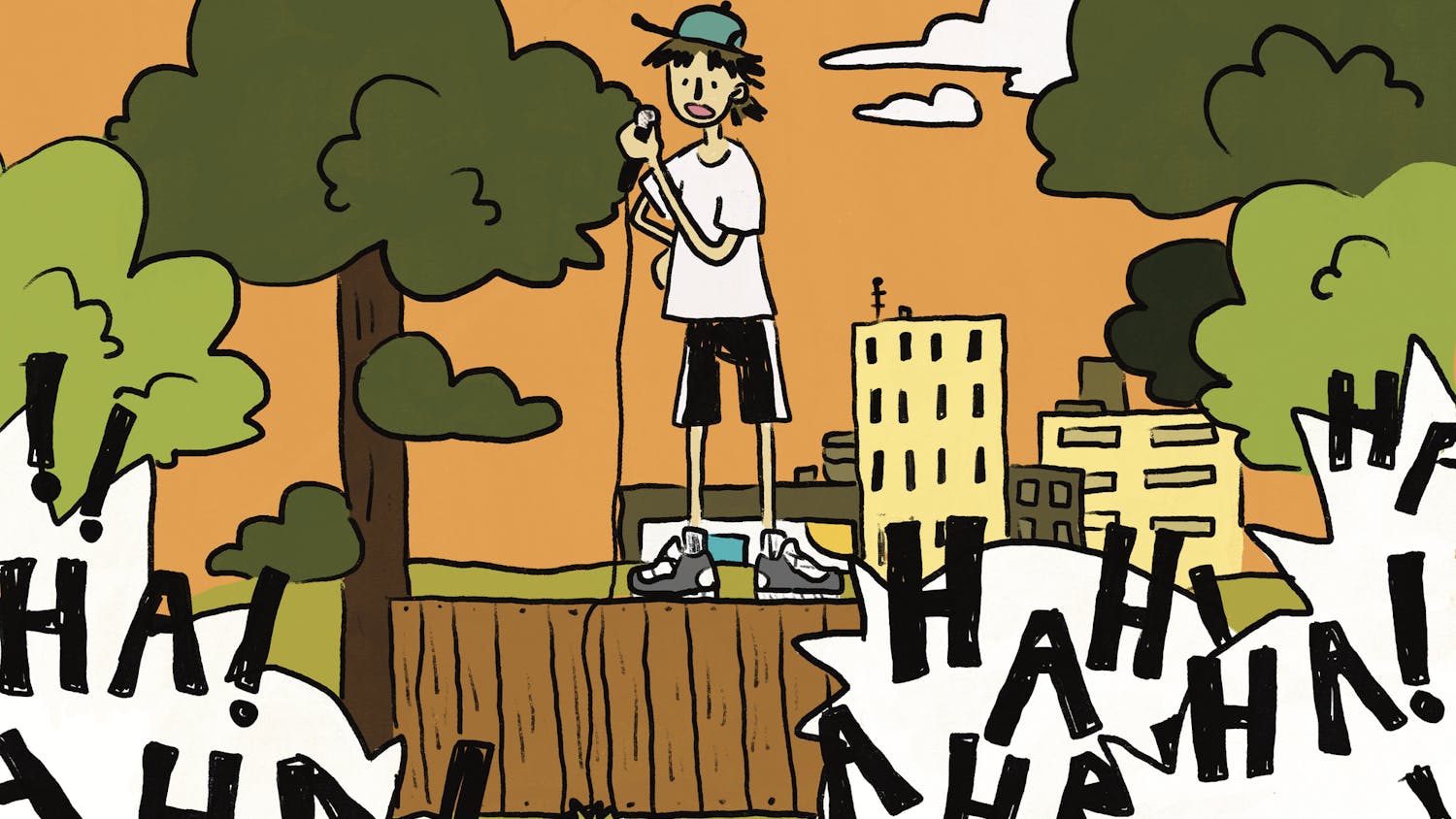Grade: A-
“The Walk” is one of the most joyful movies of the year. It is an imperfect yet moving tribute to pursuing your dreams and doing what others think impossible.
“The Walk” is a dramatization of the true story of Philippe Petit, a French high-wire artist who successfully rigged a cable across the Twin Towers of the World Trade Center and walked across it several times. Joseph Gordon-Levitt plays Petit and breaks the fourth wall while standing on top of the Statue of Liberty, to tell the audience about how he planned the walk.
The wall-to-wall narration is a mixed bag. Though it provides color and allows the audience to get a deeper look into Petit’s mind, it can also unnecessarily repeat things that have already been said.
Gordon-Levitt’s performance brings a level of charm and humanity to the part that helps make the audience root for Petit to succeed. Gordon-Levitt has been criticized for his French accent. It is kind of like the prosthetics they used to make him look like Bruce Willis in “Looper,” because it is a bit of a hindrance at first but becomes less noticeable throughout the film.
The supporting cast is excellent. Charlotte Le Bon is endearing as Petit’s girlfriend, and Ben Kingsley gives a wonderful performance as Petit’s mentor.
The score is beautiful and versatile. It has sections that are more jazzy for the scenes where they pull off rigging the wire and more French-inflected sections for the sequences depicting Petit’s early life. One of the main musical themes evokes the wonder and danger of the whole walk with just a piano, some string instruments and a few vocal parts.
Le Bon’s character, Annie, is the only major female character in the film. She is appealing, but her main function is to help Petit achieve his dream. Both she and the filmmakers seem to know this, as she eventually leaves Petit by telling him, “You’ve found your dream; It’s time for me to find mine.”
That dream of walking a high wire between the Twin Towers is rendered with some astounding special effects. The use of POV shots from Petit’s perspective brings home the great danger of his feat. That sequence was so well shot and edited I felt tempted to clap along with the spectators who gathered to watch him perform.
My favorite scene in “The Walk” happened when Petit climbed up to the top of one of the towers and stood looking to the other tower. His face is fearful and he says, “It’s impossible, but I will do it!”
That scene neatly summarized everything “The Walk” had to say about how people should try to achieve their dreams even though they seem impossible. It’s an optimistic message in keeping with the film’s relatively light tone. The last shot of the Twin Towers is tinged with melancholy, but their construction, much like Petit’s walk, remains a triumph.




